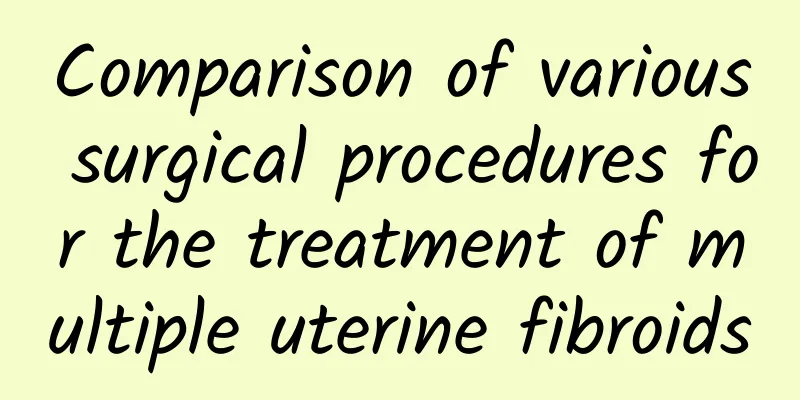Comparison of various surgical procedures for the treatment of multiple uterine fibroids

|
Surgery is a common method for treating multiple uterine fibroids, and there are two main surgical procedures, namely laparoscopic minimally invasive surgery and laparotomy. So, what is the difference between these two surgical methods? The purpose of laparoscopic surgery is the same as that of open surgery, which is to remove the fibroids as completely as possible, but neither can guarantee that there will be no omissions or recurrences. With the development of medical technology, laparoscopic surgery has been widely developed in China, but it has not reached the level of popularization. In other words, it is still a new surgical method. Not all gynecologists have this skill, but its advantages such as less trauma, quick recovery, and beautiful appearance are widely recognized. The advantages of laparoscopic minimally invasive surgery are more reflected in the slight postoperative adhesion and no obvious postoperative abdominal pain, which are significantly lower than open surgery, which can be fully reflected in the second or more surgeries of some patients. Laparoscopic surgery to remove uterine fibroids is actually the same as open surgery to remove fibroids. Fibroids that can be seen protruding outside the uterus are easy to remove. The difference is that open surgery uses the hand to touch the small fibroids buried deep in the muscle layer, while laparoscopic surgery requires the surgeon to feel through the operating instruments. The feel of open surgery can be easily obtained, while the feel of laparoscopic surgery requires the surgeon's sensitivity and laparoscopic experience. Therefore, relatively speaking, laparoscopic surgery to remove fibroids will miss some, but for skilled laparoscopic surgeons, the possibility of residues is not higher than that of open surgery. According to statistics, the 5-year recurrence rate after uterine myomectomy is 15% for open surgery and 20% for laparoscopy, but there is no statistical difference between the two. Even if there is a recurrence, if there are no symptoms and the diameter of the fibroid does not exceed 5 cm, there is no need to consider surgery, and observation is sufficient. Postoperative recurrence includes missed and recurred fibroids. The leftovers are small fibroids less than 5 mm buried deep in the surgery that are not easily discovered by the surgeon and are left behind, and then grow slowly. Another type is fibroids that did not grow during surgery but grow back later. Since the recurrence rate after laparoscopic surgery has not increased significantly, laparoscopic surgery is still recommended from the perspective of minimally invasive surgery and aesthetics. |
<<: How to prevent vaginal candidal infection for expectant mothers
>>: The causes of dysmenorrhea vary among women of different ages
Recommend
What are the symptoms of irregular menstruation in women?
What are the symptoms of irregular menstruation i...
What are the causes of uterine fibroids? Common hazards of uterine fibroids
Submucosal fibroids account for about 10% of uter...
What are the symptoms of menopause in women?
Menopause is an important stage that women must g...
Is it normal to bleed after applying medicine for cervical erosion?
Cervical erosion refers to cervical columnar epit...
Can I take a bath during my menstrual period in summer?
Women should pay attention to keeping warm during...
What should women pay attention to after uterine fibroid surgery?
Everyone knows that uterine fibroids are a very c...
What are the causes of pelvic effusion in women?
The presence of fluid in the female pelvis is a n...
Ovarian cyst surgery must be considered in two situations
Before surgery for ovarian cysts, a detailed anal...
What are the examination methods for acute pelvic inflammatory disease?
What are the examination methods for acute pelvic...
Experts explain the health care of candidal vaginitis
Correct health care for candidal vaginitis is ver...
What causes menstrual lower back pain?
What causes menstrual lower back pain? Menstrual ...
What are the symptoms of uterine fibroid cancer?
Uterine cancer, also known as endometrial cancer,...
Gaining weight again is the nightmare of those who are trying to lose weight! Small meals and a Mediterranean diet can prevent weight gain
Many people have tried many weight loss methods b...
Which is more serious, candidal vaginitis or pelvic inflammatory disease?
Vaginal candidiasis refers to vulvovaginal candid...
How to eat to avoid sarcopenia? Nutritionist: Take four doses to supplement vitamin D and high-quality protein
In recent years, Taiwan's aging trend due to ...









